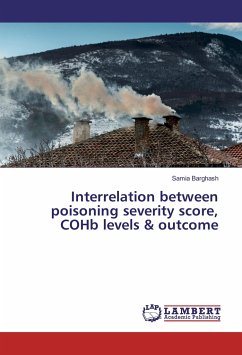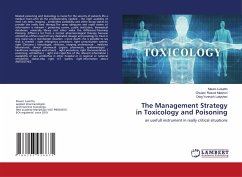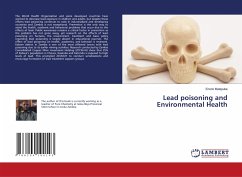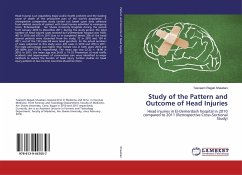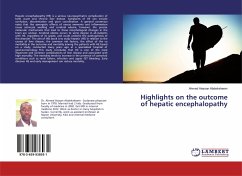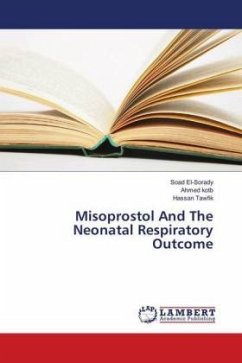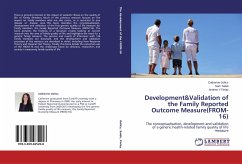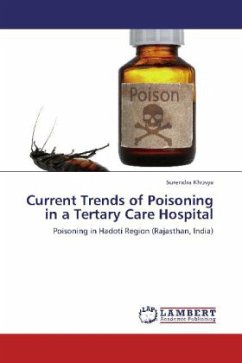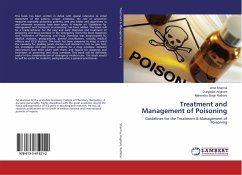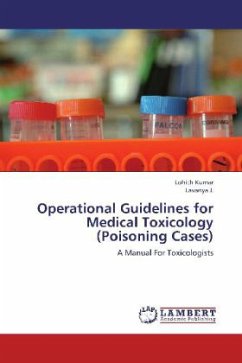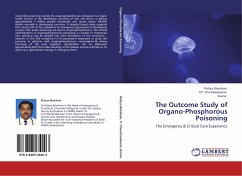
The Outcome Study of Organo-Phosphorous Poisoning
The Emergency & Critical Care Experience
Versandkostenfrei!
Versandfertig in 6-10 Tagen
32,99 €
inkl. MwSt.

PAYBACK Punkte
16 °P sammeln!
Insecticide poisoning namely the organophosphorous compound is a major health burden in the developing countries of Asia and Africa. It affects approximately 3 million people worldwide and causes about 200,000 deaths annually in developing countries. A hospital based study suggests that nearly half of the admissions to emergency department in developing country with acute poisoning are due to organophosphorous. The clinical manifestations of organophosphorous poisoning is a results of cholinergic over activity.It can be divided into over stimulation of the muscarinic , nicotinic or the CNS rec...
Insecticide poisoning namely the organophosphorous compound is a major health burden in the developing countries of Asia and Africa. It affects approximately 3 million people worldwide and causes about 200,000 deaths annually in developing countries. A hospital based study suggests that nearly half of the admissions to emergency department in developing country with acute poisoning are due to organophosphorous. The clinical manifestations of organophosphorous poisoning is a results of cholinergic over activity.It can be divided into over stimulation of the muscarinic , nicotinic or the CNS receptors.It is of paramount important to study the outcome in patients with organophosphorous consumption.By doing this,many of the post ingestion complication can be addressed appropriately.With the understanding of the disease process will help us to draw up a appropriate strategy in managing them.



